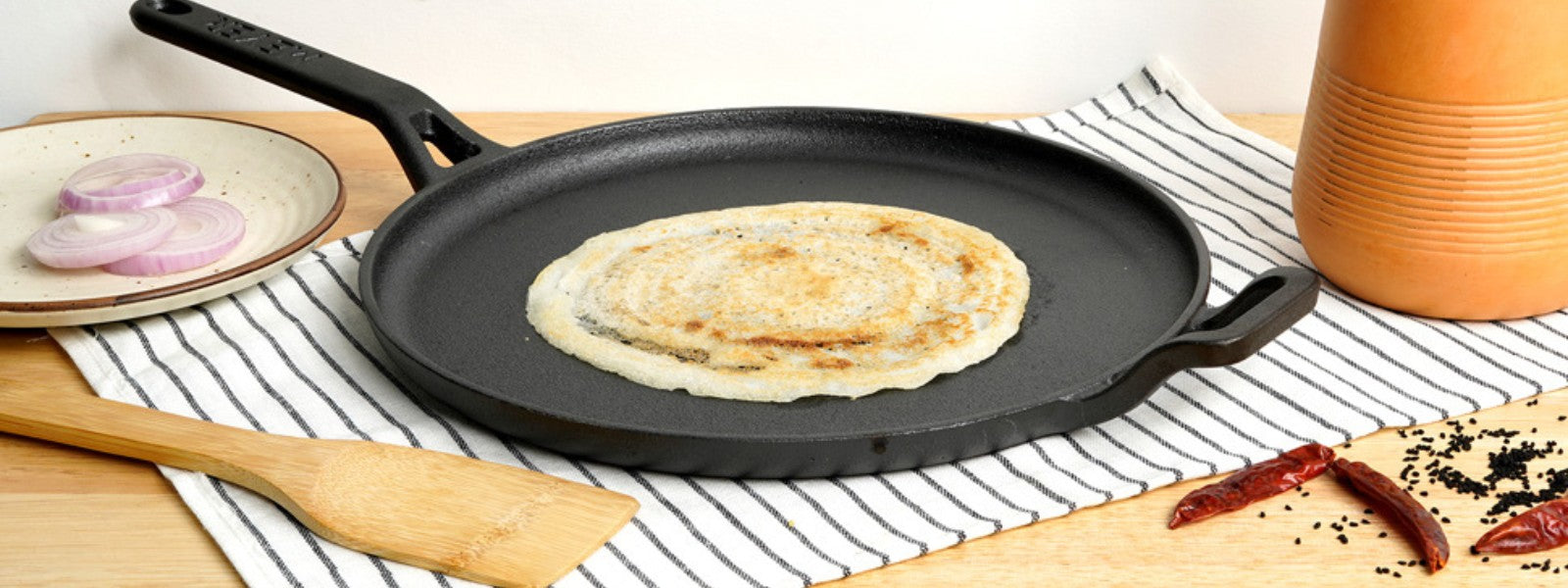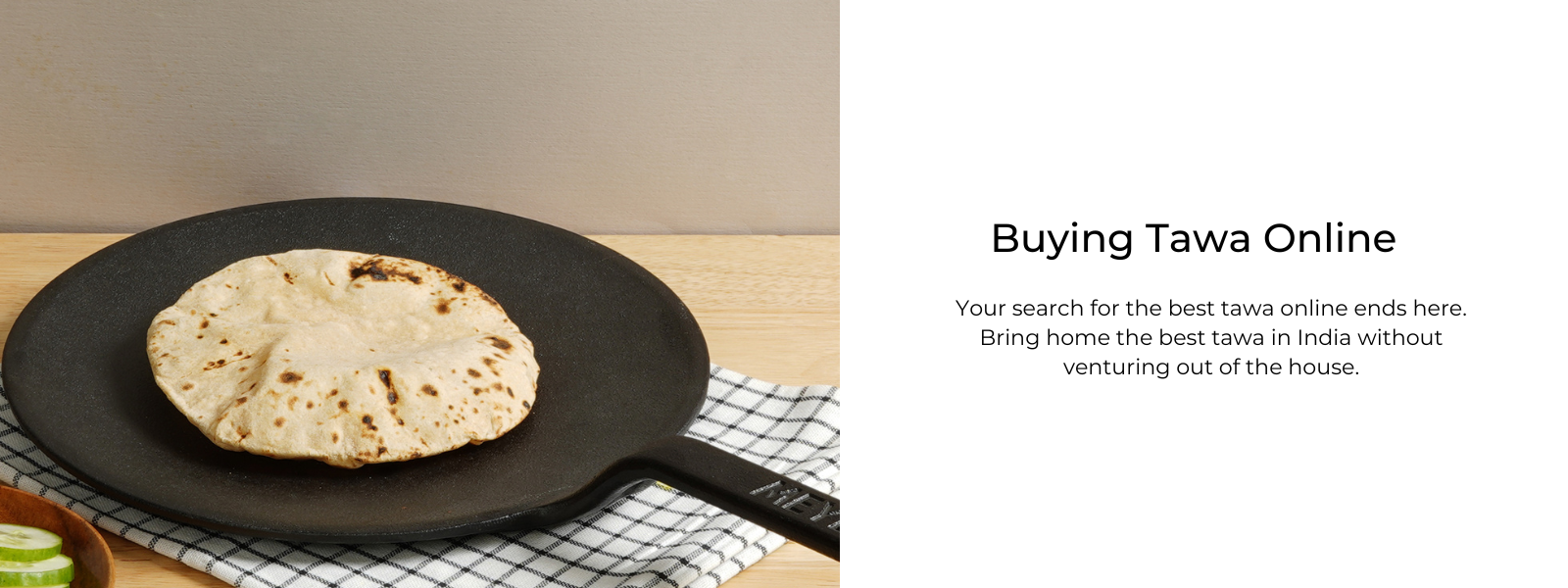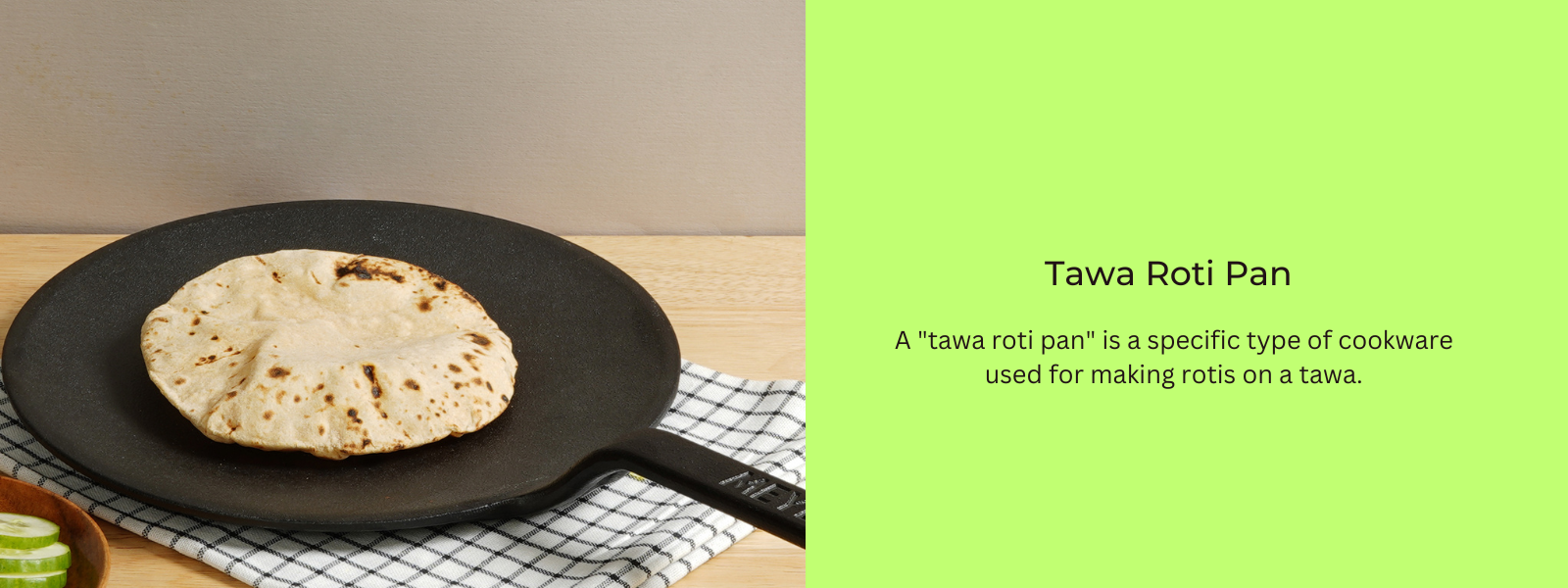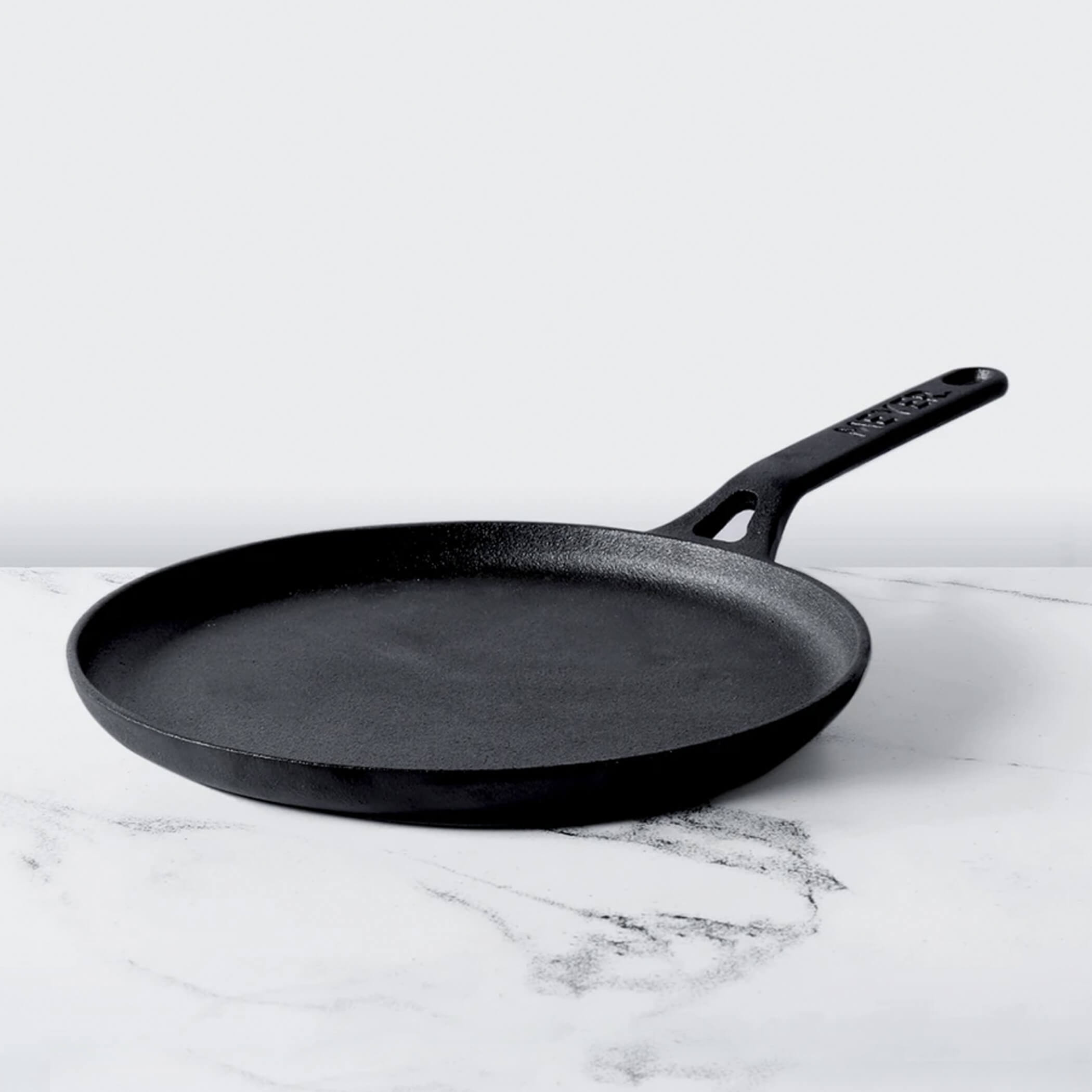An Indian tawa pan, commonly known as a tawa or dosa tawa, is a flat, round, and shallow cookware used in Indian cooking to make various flatbreads like rotis, chapatis, parathas, and dosas. Cast iron, steel, aluminium, or a combination of these three metals, as well as other materials, are frequently used in the production of this vital kitchen utensil seen in Indian homes.
Table of Contents
What is An Indian Tawa Pan?
An Indian tawa pan is a versatile cookware item that can be used to prepare a wide range of dishes. Its flat and shallow design makes it suitable for cooking various flatbreads and other items.
Key Features of an Indian Tawa Pan:
- Flat Surface: The tawa pan has a flat and smooth cooking surface, which is crucial for cooking flatbreads evenly without any raw or overcooked spots.
- Size: Indian tawa pans come in various sizes to suit different cooking needs. The size of the tawa is chosen based on the number of flatbreads one intends to make and the available cooking space.
- Material: Tawa pans can be made from different materials, each offering unique benefits. Cast iron tawas provide excellent heat retention, while steel tawas are lightweight and easy to maintain. Some tawas have an aluminum core for better heat conductivity.
- Handles: Tawa pans come with a handle or handles on the sides to facilitate easy handling and flipping of flatbreads while cooking.
- Non-Stick Properties (Optional): Some tawa pans, especially steel tawas, may develop natural non-stick properties with proper seasoning and use, reducing the need for excessive oil during cooking.
- Versatility: Besides making flatbreads, tawa pans can also be used for cooking other items like dosas, cheelas, omelets, and more.
- Compatibility: Some tawa pans are designed with an induction base, making them suitable for induction cooktops along with gas stoves and electric cooktops.
Using an Indian tawa pan requires some practice to achieve perfectly cooked flatbreads. The tawa is usually preheated, and the flatbread dough is rolled out and cooked directly on the hot surface. The cook can adjust the heat as needed to ensure even cooking and desired browning.
Indian Pan Material:
An Indian tawa pan is typically made from various materials, and the choice of material depends on personal preferences and cooking habits. Some common types of cookware used for making Indian tawa pans include:
- Cast Iron: Cast iron tawa pans are traditional and widely used in Indian cooking. They have excellent heat retention properties, which make them ideal for cooking flatbreads like rotis and parathas. Cast iron tawas require seasoning to develop non-stick properties and enhance their performance.
- Steel: Steel tawa pans are popular for making dosas, as they have good heat conductivity and are lighter than cast iron tawas. Some steel tawas come with an aluminum core to further improve heat distribution.
- Aluminum: Aluminum tawa pans are also used for making dosas and are known for their lightweight and fast heating properties. However, they may require a little more oil to prevent sticking compared to steel or cast iron.
- Non-Stick Coated: Some tawa pans come with a non-stick coating, typically made from materials like Teflon or ceramic. Non-stick tawas are convenient for cooking dosas and other flatbreads with minimal oil, but they require gentle handling and careful cleaning to maintain the non-stick properties.
- Tri-Ply or Multi-Ply: Tri-ply or multi-ply tawas are constructed with layers of different metals, such as stainless steel and aluminum. The combination of materials provides even heat distribution and efficient cooking, making them suitable for both dosas and other flatbreads.
What Can You Cook On An Indian Pan?
Here are some popular dishes that you can cook on an Indian tawa pan:
- Roti/Chapati: One of the primary uses of an Indian tawa pan is to cook rotis or chapatis, which are unleavened Indian flatbreads made from whole wheat flour. The tawa's even heating ensures that the rotis cook uniformly.
- Paratha: Parathas are stuffed Indian flatbreads made by rolling out dough with various fillings like potato, paneer, or spinach. The tawa is perfect for cooking parathas until they are golden brown and crispy.
- Dosa: Dosas are thin, crispy crepes made from fermented rice and lentil batter. The tawa's flat surface is ideal for spreading the dosa batter and achieving the perfect texture.
- Uttapam: Uttapam is a South Indian dish similar to dosa but thicker and topped with various vegetables. The tawa's size and even heat distribution help cook uttapam evenly.
- Cheela/Pesarattu: Cheela is a savory Indian pancake made from besan (gram flour) or moong dal batter. Pesarattu is a similar dish made from green gram (moong dal). Both are easy to prepare on the tawa.
- Egg Dishes: Tawas are perfect for making omelets and fried eggs, as the flat surface allows for easy flipping and even cooking.
- Phulka/Rumali Roti: Phulkas or puffed rotis and rumali rotis are thin, soft Indian flatbreads. The tawa's quick and even heating helps in puffing up the phulkas.
- Tortillas: Tawas can be used to make Mexican-style tortillas, which are similar to Indian rotis but made from corn or wheat flour.
- Pancakes: Tawas are versatile enough to cook various types of pancakes, like traditional pancakes or savory pancakes with vegetables.
- Grilled Sandwiches: Tawas can be used to make grilled sandwiches, giving them a crispy texture and delicious filling.
Conclusion:
It's important to note that each type of Indian tawa pan has its advantages and considerations. For example, cast iron tawas are known for their durability and natural non-stick properties (after seasoning), while non-stick tawas offer easy release of dosas without sticking.
The choice of material for the tawa pan ultimately depends on individual preferences, cooking needs, and the level of maintenance one is comfortable with. Regardless of the material, proper seasoning (for cast iron) and regular care will ensure that the tawa pan performs well and lasts for a long time.










Leave a comment